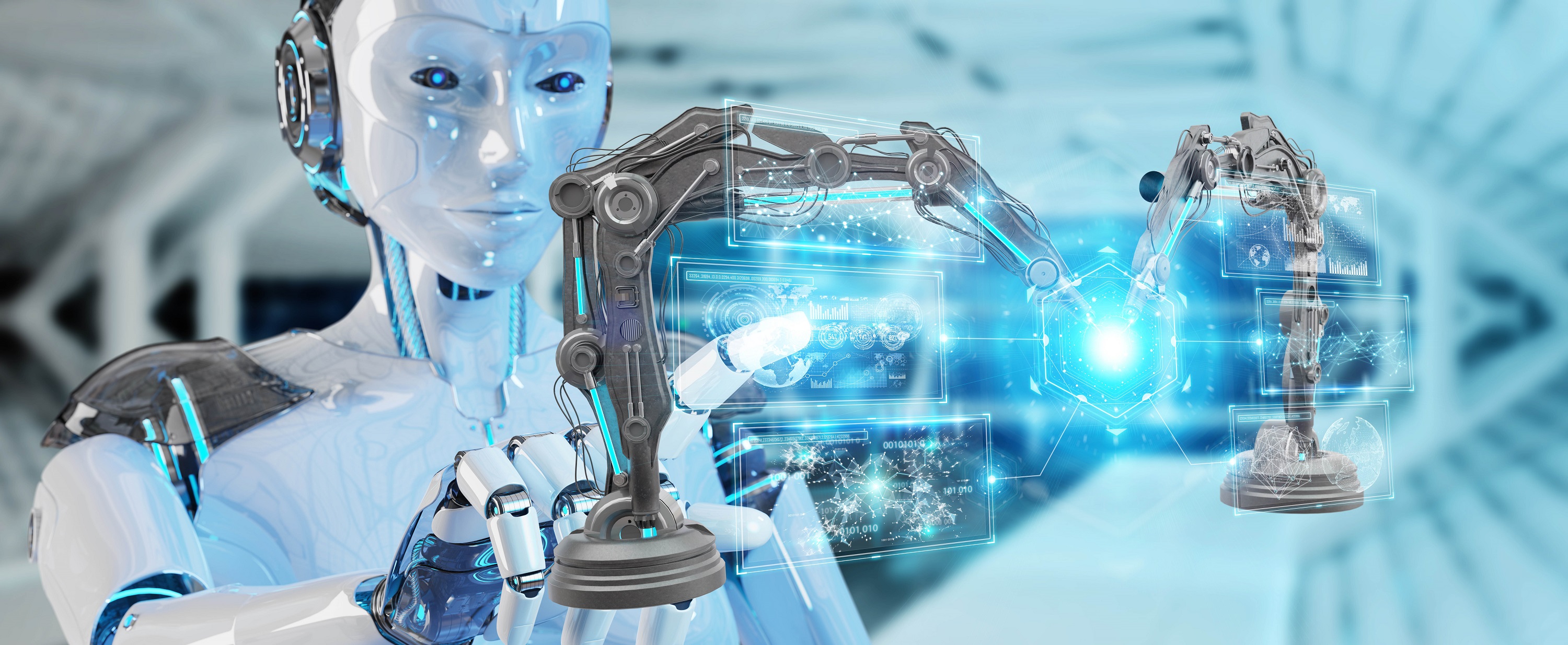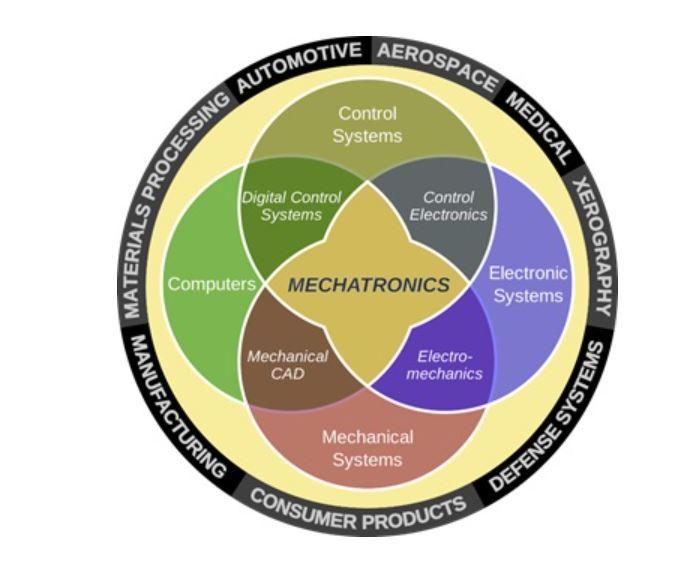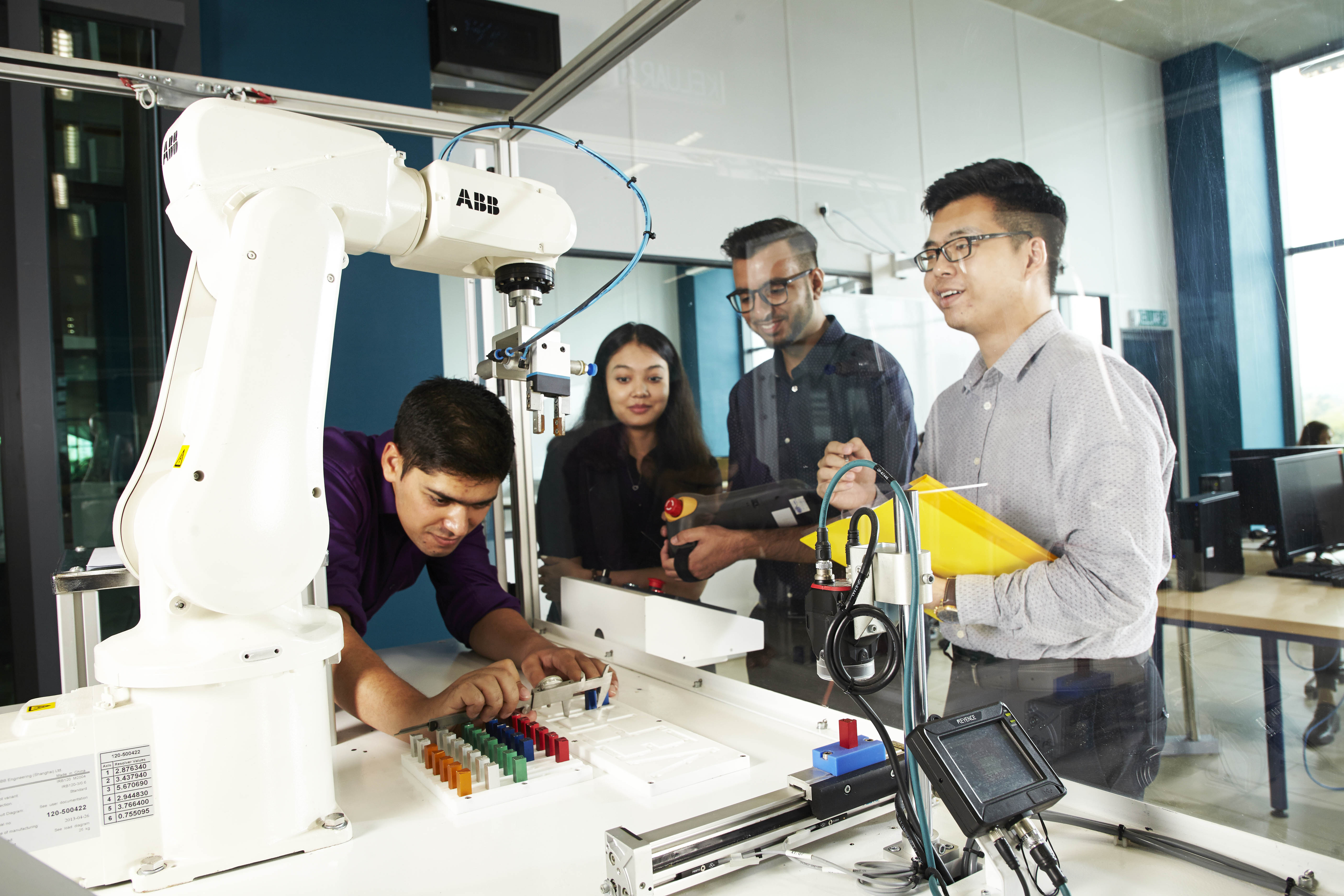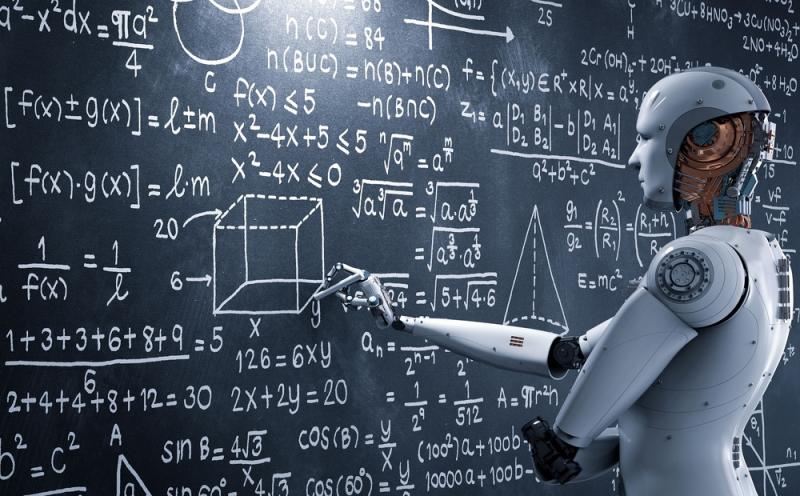The breeding ground of Mechatronics, Robotics and Automation
In June 2021, the people were astonished seeing Spot - Boston Dynamics’ robot dog dancing with K-pop sensation BTS₁. Sophia, the most advanced social humanoid robot introduction by Hanson Robotics in 2018 had left everyone mesmerized; and way back in 2008, the first zero-emission car, Tesla, created by entrepreneur Elon Musk, shook the transportation industry. These groundbreaking technology marvels subsequently led to a metamorphic increase in demand for Mechatronics, Robotics and Automation talents, skills and knowledge.
These technologies and mechanisms can be applied to many advanced technological systems, such as medical sensing and control equipment, manufacturing automation or electro-optics for the defence industry. With the advent of the Fourth Industrial Revolution (IR4.0), more and more industries and manufacturers are integrating automation and intelligent systems to increase optimization and production efficiency.
Technically, the integration is challenging as it requires the involvement of components such as advanced computing systems, electrical & electronics devices, sensors & actuators, Programmable Logic Controller (PLC), with the addition of Artificial Intelligence (AI) and the Internet of Things (IoT). Without a doubt, engineering sophisticated processes such as these requires talents with knowledge from multidisciplinary fields - mechanical, electronics, electrical, software, computing fields; on top of a combination of robotics, automatics, digital informatics and telecommunication systems.
To nurture talents with comprehensive knowledge on mechatronics, robotics and automation, Asia Pacific University of Technology & Innovation (APU), provides a Bachelor of Engineering in Mechatronic Engineering with an Honours degree programme that has been specially designed to provide future engineers with an edge towards adoption of the latest technologies that are in line with IR4.0.

Robotics and Automation Learning
With the inseparable robotics and automation elements, Mechatronic Engineering equips students with the knowledge and skills which are essential for IR4.0 and its core pillars such as IoT and Smart Technologies.
Mechatronic Engineering allows students to completely immerse themselves in robotics and automation practice. Students undertaking other engineering specialisations at APU also have a “taste” of these two areas as part of the common core modules. For instance, a robotics-related module “Machine Vision & Intelligence” is offered in Electrical & Electronics (EEE), Telecommunication (TE) and Computer Engineering (CE) programmes; and the automation-related module “Industry Automation” is also offered in the EEE programme.
Notably, all engineering programmes are dual awards by APU and De Montfort University (DMU), UK. Under this Scheme, students will receive 2 Degree Certificates & Transcripts upon graduation – a BEng from Asia Pacific University (APU), Malaysia and an MEng from De Montfort University (DMU), UK. DMU also awards an MEng Award for all other Engineering Programmes at APU.
According to Assoc Prof Dr Thang Ka Fei, Head of School of Engineering, APU, “Mechatronic Engineering learning encompasses four areas – Mechanical, Electronics, Computing and Control. In addition, APU’s well-equipped laboratories on robotics and automation, such as Power System lab, Robotics lab, PLC Controls lab, Pneumatics & Automation lab, enable students to complete hands-on assignments and develop their Final Year Project.
Industry Level Robotic Research Studies @ APCoRE
From a research and projects development perspective, the Asia Pacific Centre of Robotics Engineering (APCoRE) designed and commissioned in 2013 jointly by APU’s Deputy Vice-Chancellor Prof Ir Ts Dr Vinesh Thiruchelvam and Senior Lecturer Suresh Gobee enables students to put theory into practice. They develop prototypes and projects with the same components, systems and technology that today’s professionals are working on in their respective fields.
Outputs from APCoRE have a potential impact on the medical, retail and service sectors. A robotic exoskeleton that improves ambulation and enhances mobility for individuals with different types of neurological disabilities, was a success story at APCoRE. Another project is the Virtual Operated Robotic Arm (VORA) which combines VR technology and engineering for multiple uses. APU’s very own humanoid built by students together with academic staff researchers served as a Guest Ambassador at the Institution of Engineers Malaysia (IEM) annual dinner launch in 2019.
APCoRE has further delved into Additive Layer Manufacturing (ALM) projects via instigation of data computer-aided-design (CAD) software and 3D object printers/scanners onto direct hardware to then deposit material, layer upon layer, in precise geometric shapes. This has also enabled APCoRE student researchers to expose themselves to Rapid Prototyping scaling physical parts of a production assembly.
Via APCoRE and its student members, APU has driven STEM Education by introducing Robotics and Engineering at 78 national schools across Malaysia between 2014-2019. This has been jointly carried out with the Institution of Engineers Malaysia (IEM) and the Institution of Mechanical Engineers (IMechE-UK).

“APCoRE is open to all APU students, regardless of their study programmes, fields, levels, as long as they have an active interest in robotics. This centre is important for nurturing future engineers as involvement in APCoRE provides an opportunity to plan, implement and execute for participation in competitions, exhibitions and real-tests of skills. At APU, the undergraduate programmes are focused on imparting Fundamental Engineering Knowledge, Practical & Experimentation, and Graduate Employability Skills which are closely integrated with Teaching & Learning and Assessments,” added Dr Thang.

Professional Skills Honed through Competitions
In honing students’ actual strength in mechatronics, robotics and automation, or rather say to test their competency in employability skills, APU’s School of Engineering has been arranging their students to take part in various competitions held beyond the campus. Recently, four Mechatronic Engineering students defeated over 200 candidates from 43 countries and emerged Champion at the Hilti Global IT Competition 2021, a competition that tested their skills in RFID, IoT, mechatronics, robotics and remote monitoring technology.
Apart from the Hilti Global IT Competition, APU students have been exposed to similar industry-level competitiveness at The Asia Pacific ICT Alliance Awards (APICTA), ABB Intervarsity Innovation Challenge and The ABU Asia-Pacific Robot Contest (ABU Robocon).
Globally recognised Engineering Degree
The Mechatronic Engineering programme at APU has been accredited by the Board of Engineers Malaysia (BEM), a signatory for Malaysia under the Washington Accord, of which 21 countries are aligned in terms of engineering education being on the same platform. It also has all the required Mechanical Engineering core subjects embedded within its curriculum as part of the fulfilment of the Accreditation Board for Engineering and Technology/ Engineering Accreditation Commission (ABET/ EAC) regulations or standards.
Career Path for Mechatronic Engineering Graduates
To ensure the students are future-ready and for the market needs, APU’s Mechatronic Engineering undergraduate programme also offers modules like Programming with Python, Engineering Software and Applications, Digital Electronics and Industrial Automation. This will ultimately convert them into multiskilled engineers who enjoy versatility in career options.
The careers field for mechatronics engineers is almost endless, spanning across mechanical, electrical and computer engineering, meaning that jobs can be found in nearly every industry, roles include designing consumer machines, industrial machines, robotics and automation for advanced manufacturing, robot control systems or aviation electronics, software and hardware development for real-time computer control systems among others.
In summary, mechatronic engineers are those who make any existing systems smarter. This new breed of engineers has to work in a hybrid manner, meeting an ever-increasing need in an industry where the complexity of projects are rising and resources are limited. Therefore, graduates of this discipline are sought after for management positions as well because of their diverse skills and overall knowledge of state-of-the-art technology.
The employability strength of APU’s graduates has been officially endorsed in the latest Annual Graduate Tracer Study by the Higher Education Ministry, 100% of APU graduates were employed upon graduation. This is a significant symbol of APU’s success and pride in nurturing professionals for global careers. To date, over 50,000 alumni have embarked on their careers worldwide.
In order to help further understanding relating to APU's courses and facilities, please log into www.apu.edu.my or call us at +603 8996 1000/1 300 888 278 (toll-free) or email us at [email protected].
RM12.50 / month
- Unlimited access to award-winning journalism
- Comment and share your opinions on all our articles
- Gift interesting stories to your friends
- Tax deductable
